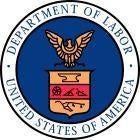Some of the bravest workers and most hazardous jobs in our country are based around and beyond our shorelines in the name and preservation of American commerce. At the Department of Labor’s Office of Workers Compensation Program, it is my job to help minimize the impact of employment injuries and deaths on employees and their families. We administer the Longshore and Harbor Workers’ Compensation Act, which provides medical benefits, compensation for lost wages, and rehabilitation services to longshoremen, harbor and maritime workers and others who are injured on the job or suffer from occupational diseases occurring on the navigable waters of the United States or in adjoining areas.
Every year, more than $1 billion in benefits in more than 60,000 cases is paid for maritime workers and various other special classes of private industry workers disabled or killed by on-the-job injuries or occupational diseases.

Longshore and Harbor Workers
The history of American shipbuilding and maritime commerce is a long and storied one. In 1927, the LHWCA was enacted to cover maritime workers injured or killed on the navigable waters of the United States. The act fills a gap left by the Merchant Marine Act of 1920, which covers only seamen and ship crew, and expands the right to compensation eligibility to more workers engaged in U.S. maritime commerce.
Over the years, the Act’s provisions have been extended to other classes of private industry workers. These include workers engaged in off-shore drilling and the extraction of natural resources in the outer-continental shelf, via the Outer Continental Shelf Lands Act; civilian employees working outside the United States on U.S. military bases or under a contract with the U.S. government for public works or national defense, via the Defense Base Act; and civilian employees of non-appropriated fund instrumentalities of the Armed Forces (e.g. moral and welfare facilities), via the Non-appropriated Fund instrumentalities Act; with each law containing its own exceptions and special provisions.
In 1972, coverage was extended landward for maritime workers to cover injuries occurring on areas adjoining the navigable waters of the U.S. customarily used in ship loading, unloading, building or repair. In 1984, Congress amended the Act to provide compensation to workers who develop occupational injuries or illnesses after retirement.
The Division of Longshore and Harbor Workers’ Compensation embodies America’s commitment to maritime workers by ensuring that those who are hurt on the job receive the benefits to which they are entitled – benefits that can keep their family afloat while they’re injured or ill. Records of the injuries and deaths reported under the Act are maintained while claims are reviewed to ensure appropriate benefits are paid correctly and promptly to each injured workers and their eligible survivors. We help workers file their claims and provide them, their employers and insurance carriers with information regarding workers’ compensation, medical benefits, dispute resolution and vocational rehabilitation. We also offer rehabilitation services to permanently injured workers to assist them to return to work. From the worker to the employer, everyone has a stake in understanding the availability of these benefits should unfortunate injuries or illnesses befall and threaten the stability of a vibrant workforce.
On shore, offshore, and overseas, we at the Department of Labor are committed to provide assistance and services to speed benefit delivery to injured workers and their families.
Gary Steinberg is Acting Director for the Office of Workers’ Compensation Programs.


 />i
/>i

